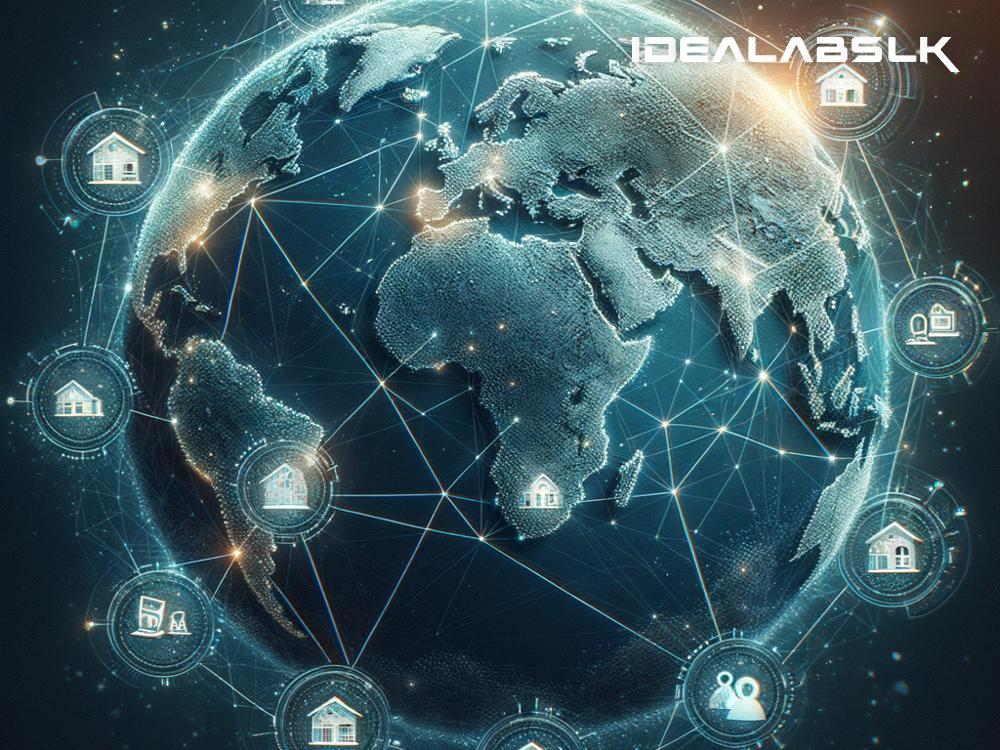Making International Property Deals Easier with Blockchain
Have you ever dreamt of owning a villa in Italy, a cozy apartment in Paris, or a beach house in Bali? Buying a property in another country is an exciting prospect, but it's also complex and full of hurdles. From dealing with different countries' laws and currencies to ensuring the legitimacy of property titles, cross-border real estate transactions can be daunting. But what if I told you there's a technology that could make this process much simpler and more secure? Enter Blockchain.
Understanding Blockchain in Simple Terms
Before we dive into how blockchain can revolutionize international property transactions, let's break down what blockchain is in the simplest terms. Imagine a digital ledger that keeps records of transactions - similar to how a notebook keeps your daily expenses. But, instead of this ledger being held by one person or organization, it's distributed across a network of computers. This means everyone on the network has a copy of this ledger, making it nearly impossible to tamper with the information.
Blockchain is known for its key role in cryptocurrencies like Bitcoin, but its potential extends far beyond, including the real estate sector.
The Challenges of Cross-Border Property Transactions
Buying a property overseas comes with a unique set of challenges:
- Legal and Regulatory Barriers: Different countries have different laws and regulations regarding property ownership, making it a complex legal puzzle for potential buyers.
- Financial Transactions: Dealing with multiple currencies and international transactions can be costly and time-consuming due to exchange rates and bank fees.
- Transparency and Security: There's a higher risk of fraud in international transactions. Ensuring the property and its seller are legitimate is crucial but can be challenging.
How Blockchain Can Help
Blockchain technology can address these challenges in several ways:
-
Smart Contracts for Simplified Transactions: A smart contract is a self-executing contract with the terms of the agreement between buyer and seller directly written into lines of code. These contracts automatically enforce and execute the terms of agreement, reducing the need for intermediaries (like lawyers or banks), which can significantly lower transaction costs and time.
-
Increased Security and Transparency: Once information is recorded on a blockchain, altering it is incredibly difficult, which significantly reduces the risk of fraud. This means that property records (like title deeds) stored on a blockchain provide a transparent and unchangeable history of ownership, making it easier for buyers to verify the legitimacy of a property and its seller.
-
Streamlined Payments: Blockchain facilitates the use of cryptocurrencies in transactions, allowing for seamless cross-border payments without the need for currency exchange or the involvement of banks, reducing fees and processing times.
-
Unified Global Standards: Blockchain can help standardize property transactions across different countries, making the process easier and more understandable for everyone involved.
Real-World Impact and Future Possibilities
Several countries and companies are already exploring blockchain for real estate. For instance, countries like Sweden, Georgia, and the United Arab Emirates have started initiatives to transfer their land registries to a blockchain, promising a more efficient, secure, and transparent system for recording property ownership.
As these technologies and practices become more widespread, we can expect the process of buying property abroad to become significantly easier. Not only could blockchain reduce the logistical challenges of international real estate transactions, but it could also make the market more accessible to a broader range of investors by lowering entry barriers.
Embracing the Future
While the full implications of blockchain in international real estate are still unfolding, its potential to simplify and secure cross-border property transactions is undeniable. By transforming complex legal and financial processes into streamlined, transparent operations, blockchain is paving the way for a future where buying your dream home in another country might be just as easy as purchasing one in your hometown.
The integration of blockchain into global real estate markets marks a fascinating evolution, heralding a new era of efficiency, security, and transparency in property transactions. As we move forward, embracing these technologies could not only make our global property dreams more attainable but also reshape the landscape of real estate investment on a worldwide scale.

